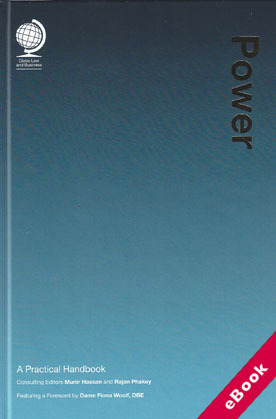
The device(s) you use to access the eBook content must be authorized with an Adobe ID before you download the product otherwise it will fail to register correctly.
For further information see https://www.wildy.com/ebook-formats
Once the order is confirmed an automated e-mail will be sent to you to allow you to download the eBook.
All eBooks are supplied firm sale and cannot be returned. If you believe there is a fault with your eBook then contact us on ebooks@wildy.com and we will help in resolving the issue. This does not affect your statutory rights.
With world electricity demand expected to double by 2030, the power sector has a pivotal role to play in meeting that growth.
While for some countries the drive towards decarbonisation and diversification of the energy supply mix presents new challenges in meeting the increased demand, others are pressing ahead with conventional fossil-fuel based generation as a cheaper means of meeting the rapid expansion of their economies.
Power: A Practical Handbook is aimed at anyone looking for a single source to understand the key issues relevant to the power sector, with an emphasis on the practical application of those issues in the real world. It offers a guide to understanding the commercial, economic and legal principles that underpin the sector.
Topics covered include significant energy policies in recent years; an explanation of industry structures and legal frameworks; economic perspectives on market liberalisation and the regulation of monopoly power networks; a look at conventional and renewables generation technologies and the issues arising therefrom; and energy storage, smart meters and smart grids.
The book also covers power project development, discussing financing issues, construction, operation and maintenance, fuel supply, power offtake arrangements, electricity trading and environmental issues.
Edited by Danielle Beggs and Rajan Phakey, energy lawyers at international law firm SNR Denton LLP, the book includes contributions by leading experts from energy utilities, project developers, lawyers, economists, academics and financiers.